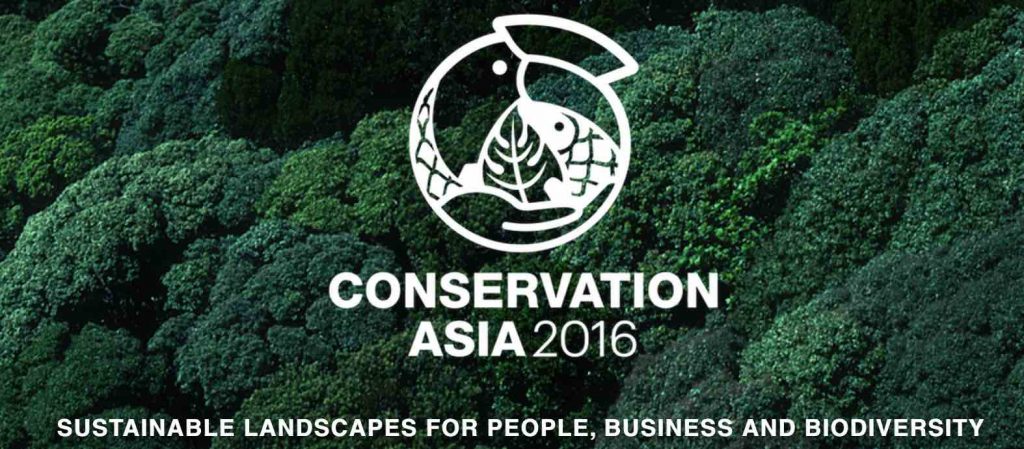Society for Conservation Biology Asia section & Association for Tropical Biology and Conservation Asia-Pacific chapter
The Society for Conservation Biology (SCB) Asia section and the Association for Tropical Biology and Conservation (ATBC) Asia-Pacific chapter invite you to join us at the National University of Singapore for the Asia Chapter Meeting, “Sustainable Landscapes for People, Business and Biodiversity”, 29 June – 2 July 2016.
The SCB and ATBC are the two largest non-profit international professional organizations devoted to the conservation of biodiversity, with >10,000 members worldwide. This is the first time that SCB Asia-Pacific and ATBC Asia regional chapters will jointly host a meeting. Conservation Asia 2016 will attract up to 500 delegates from up to 80 countries. Participants will be conservation managers, agribusiness and extractive industry leaders, policy makers, conservation scientists and students from the academic, business, NGO and government communities.
The conference theme of “sustainable landscapes for people, business and biodiversity” reflects the complexity of environmental challenges facing the Asian region. Over the past 30 years, Asia has experienced spectacular increases in economic growth and human wellbeing, sustained in part through resource extraction and crop expansion. One consequence of this has been high rates of deforestation, habitat degradation, pollution, and species extinctions across Asia. This conference will be an opportunity for researchers and practitioners to engage in scientific discourse over some of the most urgent (and contentious) environmental and conservation issues facing Asia, including (but not limited to) environment-industry trade-offs; public-private approaches to the sustainable management of natural capital; environmental markets and innovative conservation financing; urban ecology; communicating conservation science; the illegal wildlife trade; and the human dimension of conservation.
The conference will directly draw upon Singapore’s uniqueness as a regional leader in numerous sectors, from finance to research and development. It will ensure participation of leaders from the natural resources sector, especially stakeholders that have exotic plantations located in biodiversity-rich Asian landscapes. The operations of these plantations are having a profound impact on biodiversity, making constructive engagement by conservation practitioners and scientists with these companies critically important.
In order to facilitate scientific exchange, the conference is encouraging innovative symposium formats such as panel discussions, speed talks, and debates in addition to traditional 15 minute talks. The choice of format will be under the discretion of each symposium organizer, depending upon which method is expected to be the most effective for the topic and stakeholders present.




